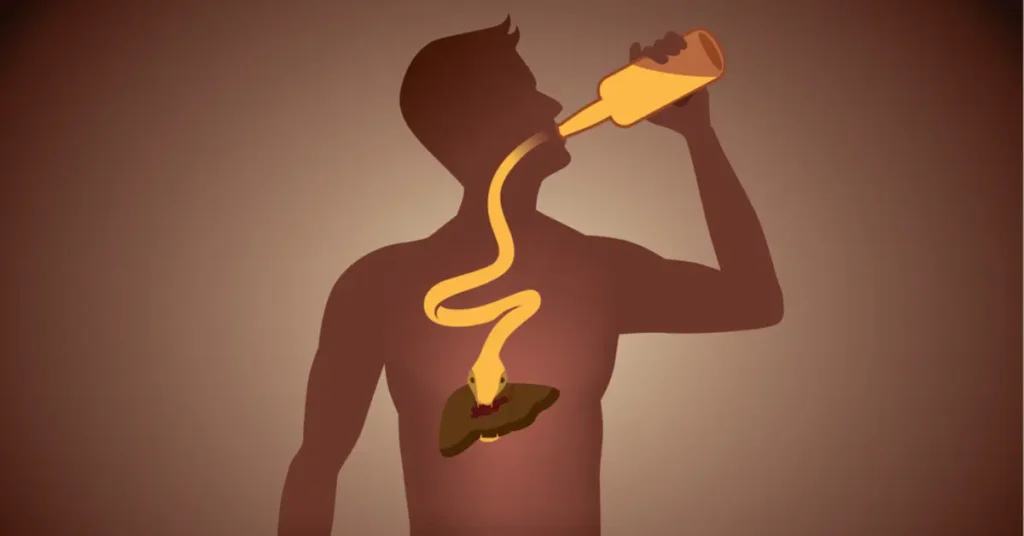In this article we will explore what is the effect of alcohol on ones gut. Grabbing a drink or making arrangements to hook up with friends or catching up with colleagues after work is a simple go-to activity. But consuming too much liquor might come at a cost. Researchers are trying to explore the effects liquor can have on the gut.
According to Ali Keshavarzian, who is an MD of RUSH Centre for integrated Microbiome & Chronobiology,, “Not only liquor itself induce alcohol-associated disorders, it can also impair the resistance of the body to a broad range of difficulties.”
Let’s begin on a quest to understand the various ways in which liquor might alter the delicate equilibrium of our digestive system. Here are five factors you should know about how liquor affects the stomach & who is more susceptible to its effects on gastrointestinal health.
Table of Contents
Alcohol may Promote Inflammatory Gut Bacteria
As we drink a glass of wine or a beer, our gut microbiome, a thriving collection of bacteria, changes. Liquor has a penchant for boosting the growth of inflammatory microorganisms in our stomach. These small organisms, when living in plenty, might contribute to inflammation, perhaps paving the way for digestive disorders.
According to Cynthia Hsu, MD, PhD, “when a person drinks high amounts of liquor, the gut microbiome might shift, favouring more potentially pathogenic microorganisms and killing off good ones. As per a research study published in the Journal of Gastroenterology & Hepatology, drinking liquor is connected with decreasing quantities of nine important beneficial bacteria that create symbiotic interactions with other bacteria.
It is essential for overall health to have a balanced gut microbiome, since all bacteria are not are created equal. Understanding the impact of liquor on these tiny dwellers gives light on the need of mindful drinking.
Alcohol Can Damage Intestinal Lining
The gut lining performs a key function in our digestive system. It act as a barrier which sustains the flow of nutrients while blocking the dangerous element. Unfortunately, liquor, particularly in excess, may upset this delicate equilibrium.
The excessive usage of liquor might harm the gut lining of the liver and minimize its protective role. This syndrome, sometimes referred to as “leaky gut,” permits chemicals that would ordinarily be stopped to enter the circulation.
The consequence? An elevated risk of inflammation and the possibility for a range of health concerns. If one carefully understands this impact on our liver then we can easily balance the usage of liquor
Alcohol Might harm the Liver
The majority of alcohol metabolism is carried out by our liver, the less noticed hero of detoxification. As we know, the excessiveness of everything is bad. If we continue drinking liquor on regular bases then it might overload our liver and lead towards situations like; fatty liver, inflammation of this critical organ, even liver disorder like cirrhosis.
According to a research paper published in Nature Reviews Microbiology, Hsu and her colleague explained how accumulating research has shown a relationship between gut bacteria imbalances, such as those produced by alcohol use, and how they can lead to dangerous bacteria populating the liver and accelerating liver damage.
When we drink alcohol the liver immediately starts its function. It breaks downlLiquor components into metabolites & then leaves them from our body. However, when alcohol intake surpasses the liver’s capacity, the extra chemicals can wreak havoc. The outcome is a liver working overtime, leading to possible long-term damage.
A research published in JAMA Open Network, which included over 700,000 Americans between the ages 20 to 64 years, indicated that among people aged 35 to 49 years, alcoholic liver disease was the second-most prevalent way alcohol related to mortality, behind overdoses on other substances.
Alcohol Can cause inflammation of the stomach lining
According to the StatPearls, consuming a minimum of five drinks on one occasion, e.g. “Binge-Drinking” such as a night out, for males, & 4 for women, may lead the mucus membrane lining of the stomach to become irritated and thinned, leading to a disease called reactive gastritis.
As per Mayo Clinic, Gastritis can be without symptoms, but it can also produce a gnawing or burning sensation in the upper abdomen that can become better or worse when you eat, nausea, stomach pains, and a sense of heaviness in the upper part of the stomach after you eat, according to the Mayo Clinic.
Even Consuming small Alcohol May Affect Things
It’s not only about the binge-drinking bouts that make us doubt our life choices. Even little, frequent doses of alcohol might have a cumulative impact on our digestive system. A glass of wine or a beer with supper every night may appear innocuous, but continuous alcohol consumption might lead to the concerns outlined previously.
The ultimate secret lies in balance & paying attention. Acknowledging that even relatively small alcohol consumption may alter our gut enables us to make educated decisions. It’s not about perfect abstinence but more about recognizing and respecting the delicate balance of our bodies.
